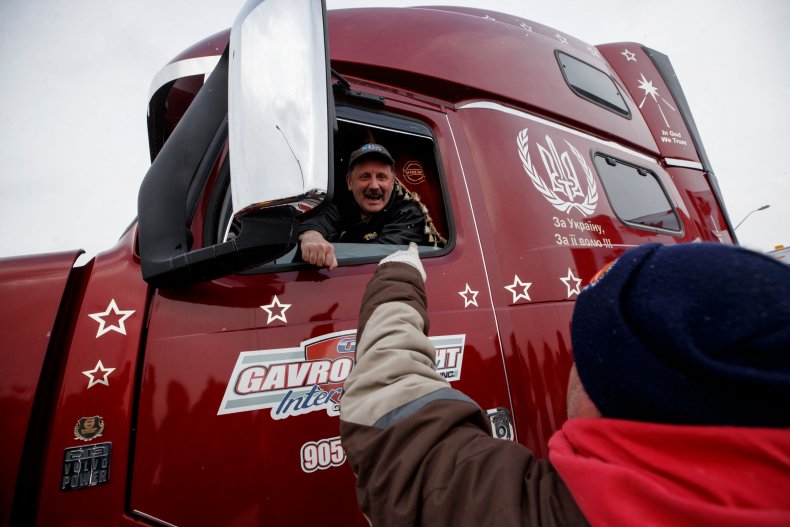One Canadian truck driver is asking protesters to get off the roads and to stop blocking his route as anti-COVID mandate protests in the nation’s capital continue for a 13th day.
The Freedom Convoy, which arrived in Ottawa on January 28, was first created in response to a federal vaccine mandate that went into effect for cross-border truck drivers last month. Prior to the mandate, those drivers were exempted from vaccination due to their essential role in the supply chain.
Over the last two weeks, Canadian truck drivers and other frustrated citizens have taken over Ottawa, demanding the federal and provincial government lift all COVID-related restrictions.
“Stop it. You’re making us look bad. I’m trying to do my job. You’re making everybody look bad,” cross-border truck driver Ted McNeill said in a message to protesters.
Speaking to City News‘ Adrian Ghobrial at a truck stop in Woodstock, Ontario, McNeill said the road closures and massive blockade caused by protesters forced him to take a five-hour detour in order to transport his truckload of food into Canada.
“I understand you don’t like the mandates. We’re all frustrated. Everybody in North America and the world is frustrated,” he said on Wednesday. “It’s got nothing to do with the government. Everybody has to pitch in—It’s not a Canadian thing. It’s a world thing.”
“I understand everybody’s frustrated. I’m frustrated. I’ve worked straight through this without time off,” McNeill added. “Stop it. You’re not helping. You’re just making more and more people mad at us.”
While on my way today to cover the Ambassador Bridge trucker protest, I stopped at a truck stop in Woodstock Ontario, where I met Ted McNeill. He had to take a five hour detour to get his truckload of food into Canada. He shared this message to those protesting COVID-19 mandates. pic.twitter.com/oOJernINIf
— Adrian Ghobrial (@CityAdrian) February 9, 2022
The mandate that ignited the convoy was estimated to affect 10 to 15 percent of the workforce or 12,000 to 16,000 drivers, according to the Canadian Trucking Alliance (CTA).
While the truck drivers were once considered essential to the supply chain, trade groups are now concerned that those who are protesting in Ottawa are now impeding that same flow of goods.
On Tuesday, 16 leading trucking trade associations warned that hundreds of millions of dollars in cross-border trade were being impacted or lost due to the ongoing protests.
“Canada’s economy is being threatened as thousands of trucks and millions of dollars in cross-border trade that typically go through these entry points every day is being disrupted,” the industry groups said in a statement. “Our borders are essential trade arteries that feed businesses and Canadians with essential goods, food, medicine, and critical industrial components that fuel our economy and support our critical infrastructure.”
Cole Burston/Stringer
“The Canadian business community is urging all levels of government to work together in bringing an immediate end to the current blockades and disruptions at our country’s border crossings and key trade corridors,” the trade associations added.
Canadian Prime Minister Justin Trudeau has refused to meet with protest organizers and continued to condemn the actions taking place in Ottawa.
Speaking in Parliament on Tuesday, Trudeau said: “This blockade, these protesters—they’re not the story of this pandemic. They’re not the story of Canadians in this pandemic.”
“We’re all tired of this pandemic. We’re frustrated. We’re worn down—none more worn down than our frontline health workers who have been going flat out for two years,” he said. “Everyone’s tired of having to wear masks, having to follow public health restrictions.”
Earlier in the week, Trudeau applauded the 85 to 90 percent truckers who have complied with the federal vaccine mandate, writing on Twitter: “To the health care workers, truckers, and others on the front lines who’ve gotten vaccinated: Thank you. Let’s all follow their example.”
While a number of truck drivers returned home after the first weekend, many protesters have insisted on staying in Ottawa until their demands are met.



















